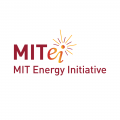
At the UN Climate Change Conference, COP24, Kathleen Kennedy, executive director of MIT’s Center for Collective Intelligence, moderated a discussion with winners of an MIT Climate CoLab contest co-sponsored by the United Nations. Here, she talks with MITEI about the winning projects and how this collaboration with the UN ties into the broader themes of the climate conference.
Q: What was the goal of the Climate CoLab contest, and why were these winners selected?
A: Well first, the MIT Climate CoLab is an open platform allowing collective problem-solving with people all around the world. We’ve been working with the UN Climate Resilience Initiative A2R, which consists of a number of different UN groups and industry and NGOs around resilience. And we have been collaborating together on a number of contests themed by the capacities for climate resilience that are priorities of A2R: Anticipate, Absorb, and Reshape. This year, we did a contest around “Absorb.”
How can at-risk communities around the world absorb climate change issues, so they don’t get completely devastated by a hurricane, a cyclone, or floods? Basically, how do they build the capacity to deal with these risks? That was really the challenge at hand. We had two different winning groups that brought very innovative solutions. One group was looking at rice farmers in Nepal: How do you use the collaboration systems, the collectives, that these rice farmers have been using for centuries, to create a new type of insurance mechanism for them? The second winning project was from a group of women from India who are working to empower women on the ground in slums to help their families to absorb climate-related risks. They have a whole network of “chit” systems for loan contingencies. This group looked at how to innovate and use that system to help them with flooding and other issues through community-based microinsurance.
Here at COP24, we had our popular choice winner as well as the judge’s choice winners present their innovations. One of the things that I’m most proud of is both of the winning projects were led by women.
Q: How do these types of activities tie in more to the broader program here at COP24?
A: I was at a conference yesterday where a lot of the discussion was about speaking truth to power. How do we continue to have these climate discussions? We feel that not enough progress is being made. One of the things that came out, over and over again, was that we actually need to be able to get deeper into the communities, and hear the voices of those on the ground who are experiencing issues related to climate change. The Climate CoLab is a really powerful platform that is able to reach into different communities and help the people that are actually experiencing the challenges put their proposals on the platform and then work collaboratively with people around the world on finding solutions.
Q: What’s next for the Climate CoLab at COP24 and beyond?
A: We are actually advancing this collaboration network that we’re doing with the UN Climate Resilience Initiative. We’re planning another contest around reshaping climate issues for COP25. We’re also in discussion to launch a number of other contests including one done in conjunction with the UN climate summit, scheduled for September 2019.






